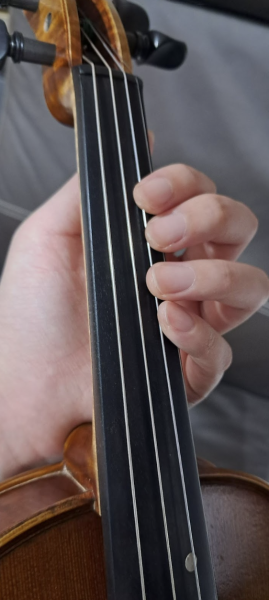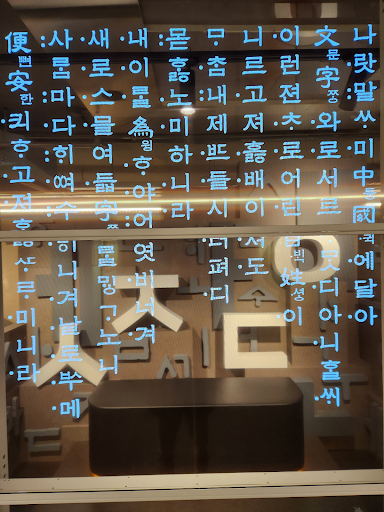Time Tripping with OHSers
Balancing schoolwork with extracurriculars at the OHS
September 17, 2013
When you’re an OHS student, sometimes it seems like academics are your extracurricular. You might find yourself thinking that there just isn’t enough time in the day to play an instrument or do a sport while still getting the grades you seek. As impossible as it may seem, however, there are many Pixels who balance a demanding workload with intense extracurricular activities. Here are some time-management tips from the experts.
Schedule Structure: Taking Advantage of the Flexible OHS Schedule
When one compares an average day at OHS with that of a normal brick-and-mortar school, it shows that we have a lot more flexibility than most high-school students. With 75-minute classes dispersed throughout or tightly condensed into our day, we have control over when we to do our homework, study, sleep, or do something fun.
Dora Gurfinkel is a freshman this year and she balances five classes with her extracurricular, gymnastics.
“I usually spend around five hours at gymnastics and nine hours doing schoolwork, including class time, each day,” finds Garfunkel. In order to find time for all of this, she plans and sticks to a structured schedule for each day. “I use two apps for studying and time management: Wunderlist and 30/30. Wunderlist lets me make lists for each of my subjects add homework, notes, reminders, and due dates to them and view them by week, day, subject, or those I have completed. 30/30 lets me to make a repeating cycle of time periods, which is useful when trying to avoid getting distracted.”
OHS makes it easier… to do school wherever and whenever
— Dora Garfunkel
The flexibility OHS offers also opens up opportunities for travel. While students at brick-and-mortar schools are tied down by a physical location and school-wide schedule, OHS students have the ability to go to class from anywhere in the world. (As long as there is internet, at least.) Dora takes advantage of this in order to participate in gymnastics competitions all over the country.
“OHS makes it easier to travel for competitions and allows me to do school wherever and whenever,” Dora continues.
Planning out your week, setting deadlines, and managing your time in general might seem hard, but once you get into the habit of it, it can be very rewarding.
“Being a gymnast and getting the grades I need is a huge commitment, but it is definitely worth it.”
Too Much of a Good Thing: How to Balance School and Activities
Having extracurricular activities is great, but no one can deny that it takes a lot of time and commitment to go to OHS. Knowing how important your activity is and how much time it takes is essential for success in both school and your extracurricular.
Peri Beckerman, sophomore, sings, acts, and dances. She’s currently in a show (Shrek the Musical) and spends over twenty hours a week working on all three of these activities while taking six classes at OHS. Peri’s activity is extremely demanding; “Sometimes I feel like my activity is holding me back in my work.” Even so, she has straightforward rules for efficiency and time management and is able to work around demanding schedules from both school and work.
Just get it done. Find time in between every activity and just work.
— Peri Beckerman
“Just get it done. Find time in between every activity and just work. Do the assignments due sooner first, then work on the harder assignments that you know will take more time, and if you’re writing papers, plan it out (write an outline!) and decide how much you’re going to do each day. Start early!”
Normal People Can Have a Life Too
Finding enough time in the day to balance schoolwork and life isn’t some kind of superpower (and no, they’re not using time-turners). The key is to stay on task and know when school needs to come before your social life.
Costanza Rasi is a junior whose extracurricular activity is “having a life.” By being aware of assignments and planning ahead, she is able to see friends and do sports such as swimming and running.
When school does get overwhelming, it’s a good idea to cut back on socializing if you can, but Costanza likes to “always keep at least one activity going so [she doesn’t] go crazy.”
Costanza has a very straightforward way to stay on-task. Prioritize! “Stay aware of what assignments are most pressing.” She does this by writing all of her assignments on a calendar and keeping upcoming or large assignments in bold letters. “Once all my bolded assignments are done, I can get ahead on the less urgent things.”
The lesson: stay organized! Take advantage of your unique schedule and structure it to fit your lifestyle. A little less time for Skype and TV can open up a lot of opportunities for travel, sports, art, or whatever it is you want to do. Even for those who aren’t committed to anything could use a little extra free time, so plan ahead, prioritize, and motivate yourself. Making a schedule is the best way to keep track of your assignments and stay on-task.














